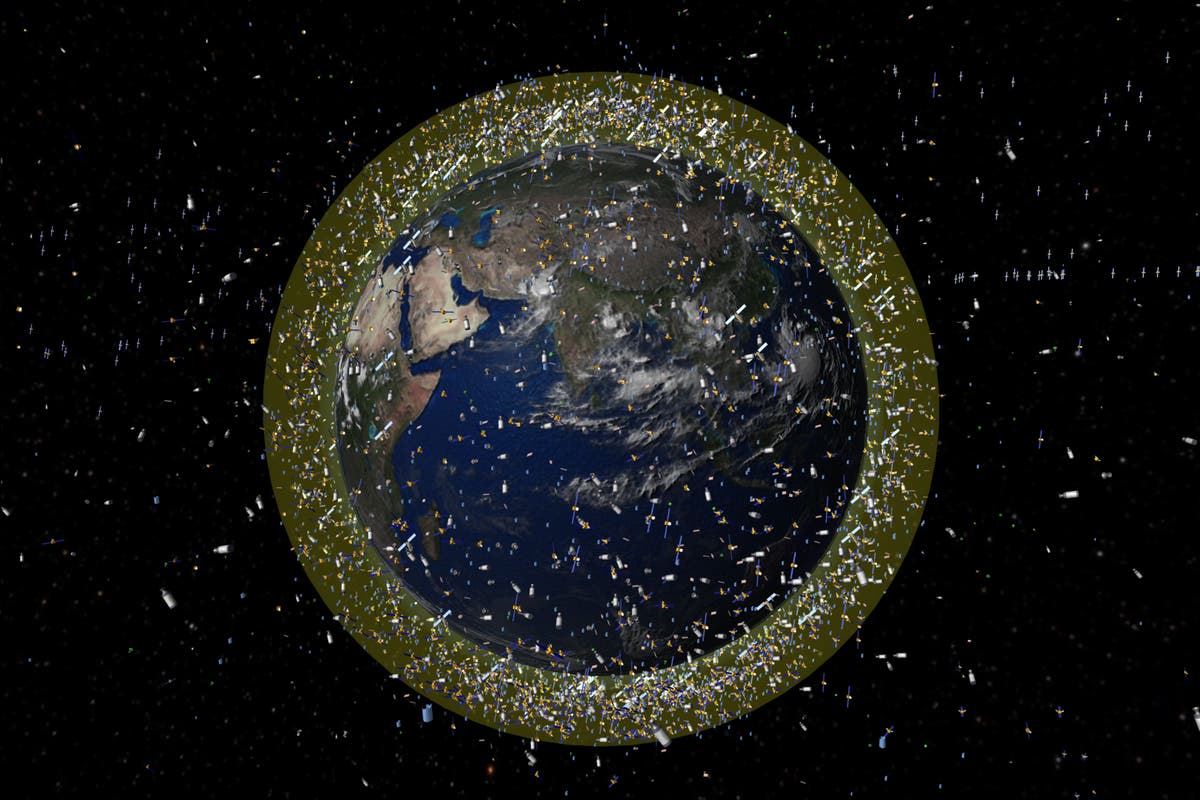Aerospace and satellite companies are urging governments around the world to adopt a “highway code” to tackle space junk.
The Space Safety Coalition (SSC), an international organisation of satellite operators, aerospace companies and industry representatives, has published new guidelines to protect satellites orbiting the Earth from being damaged by space debris.
In it, the coalition calls for a rules-of-the-road-style guidebook for manoeuvring spacecraft to avoid collisions.
Rajeev Suri, chief executive of British satellite telecommunications company Inmarsat, which is one of the 27 signatories to the SSC, said: “Initiatives like the Space Safety Coalition are an important step towards establishing international best practices and guidelines to protect the space environment, but it is not enough.
“The clock is ticking, and real action is needed.
“National regulators everywhere should now use their powers of granting market access to require that satellite operators adhere to best practices like those outlined by the Space Safety Coalition and beyond.”
Since the first orbital launch in 1957, the number of artificial objects in low-Earth orbit has been growing.
The European Space Agency (ESA) estimates there are 36,500 objects larger than 10cm currently floating in space, alongside 130 million pieces of space debris between 1mm to 1cm.
These objects are thought to move at speeds of more than 10,000 km per hour (6,200 mph), posing a risk to operational satellites in orbit.
Meanwhile, the number of satellites in orbit is expected to rise from about 9,000 today to nearly 60,000 by 2030.
National regulators everywhere should now use their powers of granting market access to require that satellite operators adhere to best practices
Rajeev Suri, Inmarsat
Collisions are rare at the moment but, as more satellites make it into orbit, it raises the need for a lot more collision avoidance manoeuvres.
In 2018, Surrey Satellite Technology’s RemoveDEBRIS mission practised grabbing a satellite with a giant net.
A year later, ESA performed its first satellite manoeuvre to avoid colliding with a mega constellation.
Meanwhile, UK-based Astroscale, also a signatory to the SSC, is planning the UK’s first national mission to remove space debris.
In its guidelines, the SSC has also laid out the best practice for space operators, which include international information-sharing between spacecraft owners, operators and stakeholders to avoid future collisions; avoiding intentional space object fragmentations or collisions that place other nations’ satellites or crew at risk; and prioritising sustainable practices during satellite launches, for example using re-usable launch vehicles or alternative fuels.



More Stories
New vaccine may hold key to preventing Alzheimer’s, scientists say
Just 1% of pathogens released from Earth’s melting ice may wreak havoc
Europe weather: How heatwaves could forever change summer holidays abroad